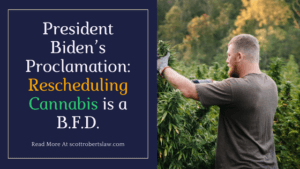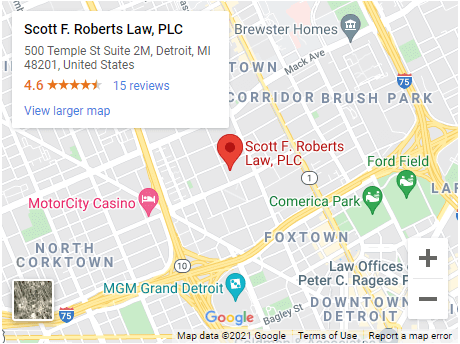One of the big questions looming over the cannabis industry is what happens after federal legalization. As a cannabis business attorney, I am asked this constantly by concerned clients. Currently, each state has its own cannabis laws and rules which govern activity in the state. Similarly, each country has its own cannabis laws and rules, and importing and exporting cannabis from one country to another is virtually unheard of. The fact that each jurisdiction acts as its own silo, with no product coming in or coming out, and each subject to different regulations and testing requirements, creates barriers to entry that make it difficult for big cannabis companies to simply take over the industry.
It is hard to underestimate the power of these borders, and how they
and small cannabis companies, especially growers and processors. These borders make it impossible for all cannabis cultivation to be centralized in one state or country, then exported to another to another jurisdiction. If this was allowed to happened, most local and regional growers would quickly be out of business as production centralizes in places such as California or Colombia.
Put another way, it’s tough for a greenhouse in Michigan, with our perpetually grey winters, to compete against a greenhouse in sunny Southern California. Growing cannabis is still farming, and without borders, it will migrate to the locations with the most favorable climate, or in the case of indoor grows, with the lowest utility costs. Michigan’s climate isn’t particularly suited for cannabis cultivation, unfortunately, while Southern California is tailor made for it. That means if cannabis can legally move across borders, then much of the cannabis being grown in Michigan for the Michigan consumer will be grown elsewhere and imported into the state.
There are many companies that placed bets big and small on the breaking down of borders in the cannabis sector. Canopy made a big bet on Colombia, which has the perfect climate for growing cannabis, and a few U.S. companies are betting on Mexican production. However, there are many more companies who have placed their bets on the borders not going away anytime soon and each jurisdiction acting as a silo. This in turn begs the question—what will happen to these borders once cannabis is federally legalized in the U.S.?
The Future of Borders
While I cannot predict the future, I would place my money on most of these borders staying in place for awhile for one simple reason—jobs. It’s the same reason why states require car dealerships to act as an intermediary for car sales, even though this raises the costs of cars for consumers. Keeping the borders in place does create “economic inefficiencies”, as economists would say, but these inefficiencies are what leads to more jobs in a jurisdiction.
If the U.S. legalizes marijuana and cannabis can cross state borders, then production will centralize in several, hyper-efficient mega facilities that minimize labor costs and mechanize much of the process. Most jobs from small to medium scales grow facilities will simply disappear if the borders break down, and while they may be good for the consumer (though this is up for debate), it is bad for local cannabis companies and the states in which they reside. Many states and municipalities decided to allow medical and recreational marijuana solely because they want to bring “cannabis jobs” to their localities.
As mentioned above, this debate is similar to the debate over direct-to-consumer car sales. Many car companies, Tesla being the latest example, have argued that they should be able to sell direct to the consumer, bypassing state laws requiring cars to be sold through car dealerships. Now economists will say that car dealerships are inefficient and cause consumers to pay more for cars, and they would be right. The owners of car dealerships, on the other hand, would counter that they are small businesses that employ thousands of people in the state, and if direct sales were allowed, all of those jobs would disappear. For the most part, legislators have agreed with the dealership owners, and these restrictions have stayed in place.
Legalities and Politics
Just because the U.S. legalizes or de-schedules cannabis doesn’t mean that these borders will automatically breakdown. The U.S. Constitution grants the U.S. government with the ability to regulate interstate commerce. That means if the U.S. were to legalize cannabis on the federal level, they could also tear down these borders when they do so. While states could still impose local regulations on testing requirements in this scenario, they would not be able to ban the sale of marijuana products imported from another state. Of course, they could also decide to leave the borders in place and let each state decide whether they want to be a cannabis “silo” or allow out-of-state imports.
Politically, one would think they stay in place, since there are many more states who would see the partial collapse of their cannabis growing and processing industries then there are states that would realize an economic boom. However, it is hard to discount the ability of a few well-funded companies to successfully lobby politicians to act against the best interests of their state’s residents and business community.
It’s important to note that once legalized, individual states could also allow the movement of cannabis through inter-state commerce even if the federal government doesn’t impose it. However, this is unlikely to happen in my opinion because it would cost these states well-paying cannabis jobs. It’s also hard to see many legislatures caring to much about customers having to pay slightly more for marijuana if it’s that cost difference that keeps those jobs in-state. Politicians don’t seem to care much about how car dealerships cause consumers to pay thousands of dollars more for cars, so its hard to see them being overly concerned about cannabis consumers paying a few dollars more for marijuana products.
Should My Company Be Worried?
Despite arguments by economists about the inefficiency of these borders, most consumers don’t really seem to mind, nor do politicians. Anecdotally, many cannabis consumers outside the industry I’ve talked to would rather pay slightly more and have a thriving local industry than pay a bit less and see the local industry disappear. This is not entirely irrational either. Many cannabis consumers fear the industry being dominated by huge producers who can offer great prices but not necessarily great products. In essence, they fear the Bud Light-ification of the cannabis industry, and the resulting loss of the craft products and local strains they have come to love.
Moreover, cannabis business owners are starting to become a force to be reckoned with politically, and not just the big cannabis companies that can afford to hire lobbyists such as the former Speaker of the House. Many local cannabis company owners were already politically active or in some cases started becoming politically active once they got into the business. Similar to car dealerships owners, cannabis business owners can flex their newfound political muscle to ensure that the borders stay in place and their businesses are protected.
While I don’t believe these borders will break down anytime soon, I’m also not here to put your mind at ease. The breaking down of borders is a very real possibility, and may even be an inevitability on a long enough time frame. However, if you are a local cannabis grower or processor, I wouldn’t start panic selling your company just yet.




